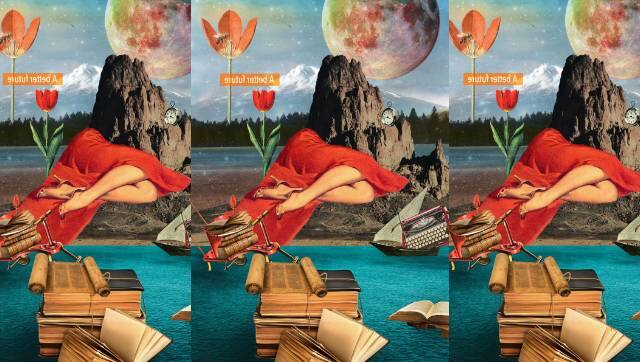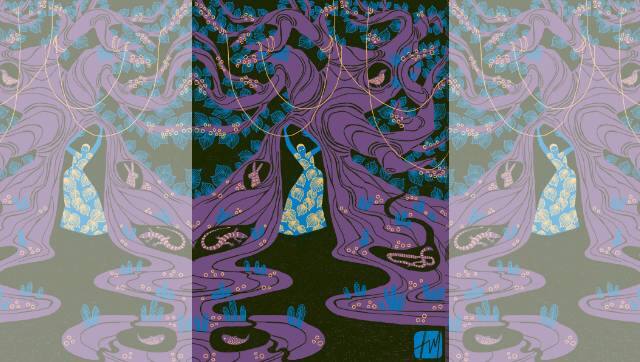The COVID-19 crisis, while being characterised by immense pain and suffering, also helped to prioritise emotional and mental wellness. Several people, who were exposed to the virus closely, found that ‘positivity’ and ‘human interaction’ were crucial to their return to normalcy, apart from standard medical care. Even for those locked indoors, the pandemic was often a unifying force, despite misery and bereavement being the only common threads connecting people. In such times, for members of the education initiative Project FUEL, it became imperative to extend their decade-old artistic practice of documenting ’life lessons’ to different geographies. “We knew that the pandemic had forced people to look at the larger world through the lens of loss. But we also wanted to feel more hopeful despite the odds, and share that resource with everyone in the form of ’learnings’ from the common people,” says Deepak Ramola, founder and artistic director, Project FUEL. Born out of that need, the World Wisdom Map, which features 400 life lessons from all of the world’s 195 countries, is a repository of words, art and data narratives. From an educator in rural Nepal, to a child soldier in Uganda, to an LGBTQ+ activist in El Salvador, the project seeks to employ human wisdom and global participation — in the form of life lessons — as a medium to educate. Through a hub and spoke model, the team behind the initiative was able to democratically collect life lessons from even the remotest and lesser-known geographies. However, the task was as much a discovery for them, as for those participating in it. Interestingly, reaching people in North Korea, Micronesia and the Caribbeans was surprisingly easier, but those with a booming expat population were the challenge. “We kept looking for someone from Swaziland but couldn’t trace anybody in particular. We realised much later that the name of the country had been changed to the Kingdom of Eswatini, and hence, the confusion,” recounts Ramola. [caption id=“attachment_9311481” align=“alignnone” width=“640”]  Sarah Kaushik’s artwork for the World Wisdom Map.[/caption] As the coronavirus crisis peaked in some countries while the World Wisdom Map was still coming together, the submissions turned more profound, embodying the global disquiet about the future. Therefore, this anxious period became integral in defining the project and its trajectory. “The lockdown enabled us to prioritise bringing forth a parallel narrative to the reported loss in numbers from around the world. That was also reflected in many contributors revealing that their life lessons were a result of deep contemplation that resulted out of this time,” says Apoorva Bakshi, business head and managing partner at Project FUEL. While there were days when the laborious task of curating the wisdom took its toll on the members, it was also, ironically, the one thing that ensured they were committed to their greater purpose. “Most hope though came through the data insights. Once Ruchika Singh, our data scientist, studied these stories, she unravelled fascinating insights — there is more hope and realisation in the world than there is anger and frustration. Or that if we have a core value, it becomes much easier to accept change.” In that sense, the World Wisdom Map may lead people to examine their coping mechanisms to negotiate drastic situations, such as the pandemic. For the curators, this meant that certain stories resonated with them a little more than others. For Ramola, one such story is that of Jillian Harris, a 44-year-old woman from Trinidad and Tobago, who said: An oak tree will never have to tell you it’s an oak tree. [caption id=“attachment_9311401” align=“alignnone” width=“640”]  Harshad Marathe’s artwork for the World Wisdom Map, inspired by Harris’ life lesson.[/caption] This is something my father told me when I was a teenager. He has these aphorisms that he would say to us from time to time, and each one has moulded my perception and judgement of the world in really profound ways. I don’t recall how old I was when I first heard it, or why he said it, but I do remember what I thought: ‘if I am in a field and an oak tree is talking to me, I have much bigger problems.’ Some years later, I was arguing with a classmate and he said to me, ‘Why don’t you trust me? I’m a Christian!" to which I replied, ‘You shouldn’t have to tell me that.’ The argument ended there, mainly because I stormed out of the room, but as I walked away, it clicked. My classmate’s words and actions were not in alignment. This is what my father had been trying to teach me all of these years. He was trying to teach me how to hear what is said, and at the same time, understand what was not. But most importantly, he was teaching me about truth and the importance of living authentically. Much like Harris’ story, the lessons shared within the project strive for human solutions to human problems. Despite the heterogeneity of our populations, the uniformity of our experiences is a notion the World Wisdom Map accentuates. “Some life lessons are so similar that one might think that they come from the same household, whereas the contributors may have never even heard of each other’s countries. We are more alike than unalike and therefore, the hope for humanity must drive our decisions, policies and purpose,” adds Ramola.
Despite the heterogeneity of our populations, the uniformity of our experiences is a notion the World Wisdom Map accentuates.
Advertisement
End of Article


)
)
)
)
)
)
)
)
)



